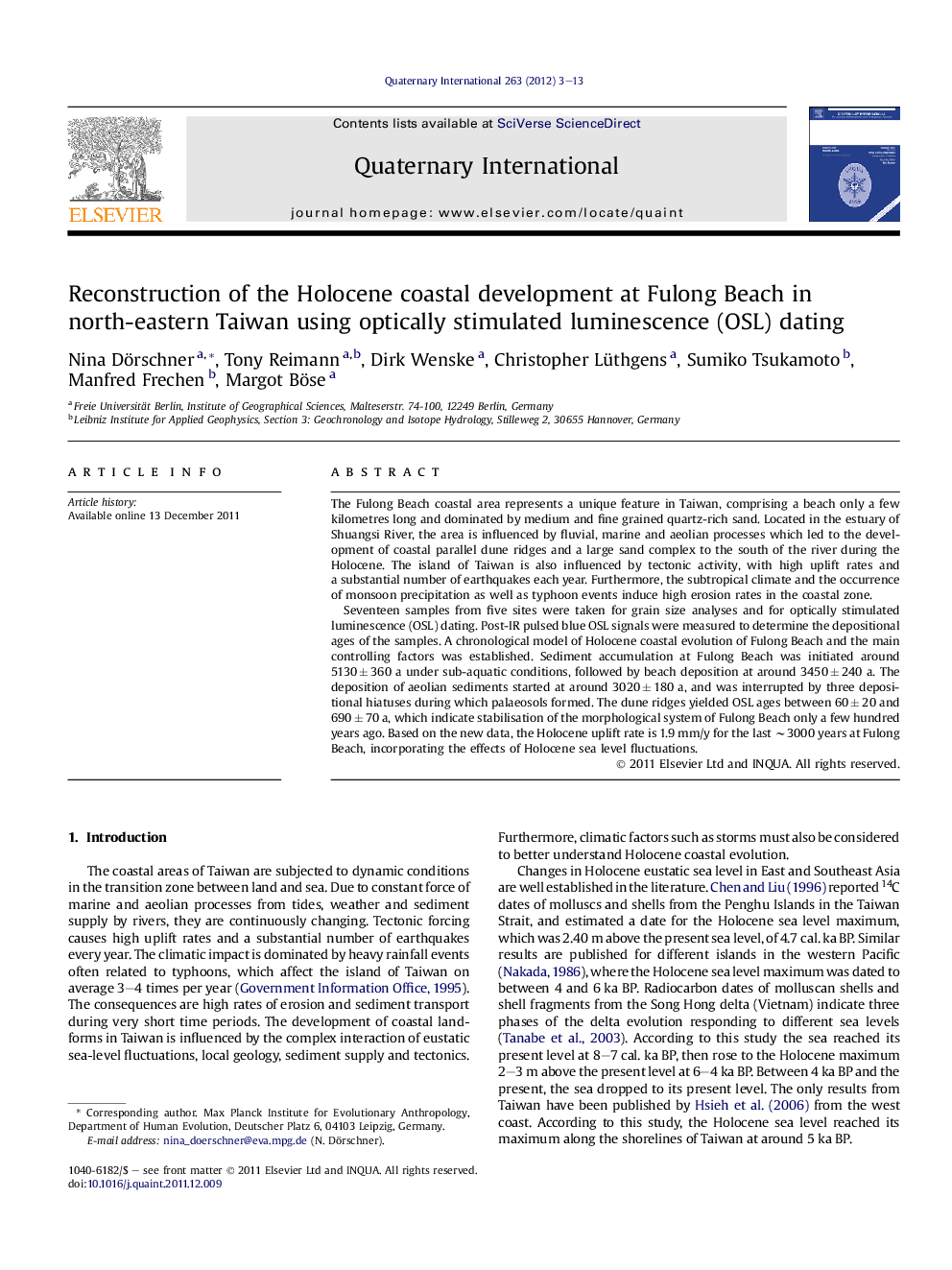| کد مقاله | کد نشریه | سال انتشار | مقاله انگلیسی | نسخه تمام متن |
|---|---|---|---|---|
| 1042858 | 1484222 | 2012 | 11 صفحه PDF | دانلود رایگان |

The Fulong Beach coastal area represents a unique feature in Taiwan, comprising a beach only a few kilometres long and dominated by medium and fine grained quartz-rich sand. Located in the estuary of Shuangsi River, the area is influenced by fluvial, marine and aeolian processes which led to the development of coastal parallel dune ridges and a large sand complex to the south of the river during the Holocene. The island of Taiwan is also influenced by tectonic activity, with high uplift rates and a substantial number of earthquakes each year. Furthermore, the subtropical climate and the occurrence of monsoon precipitation as well as typhoon events induce high erosion rates in the coastal zone.Seventeen samples from five sites were taken for grain size analyses and for optically stimulated luminescence (OSL) dating. Post-IR pulsed blue OSL signals were measured to determine the depositional ages of the samples. A chronological model of Holocene coastal evolution of Fulong Beach and the main controlling factors was established. Sediment accumulation at Fulong Beach was initiated around 5130 ± 360 a under sub-aquatic conditions, followed by beach deposition at around 3450 ± 240 a. The deposition of aeolian sediments started at around 3020 ± 180 a, and was interrupted by three depositional hiatuses during which palaeosols formed. The dune ridges yielded OSL ages between 60 ± 20 and 690 ± 70 a, which indicate stabilisation of the morphological system of Fulong Beach only a few hundred years ago. Based on the new data, the Holocene uplift rate is 1.9 mm/y for the last ∼3000 years at Fulong Beach, incorporating the effects of Holocene sea level fluctuations.
Journal: Quaternary International - Volume 263, 14 June 2012, Pages 3–13